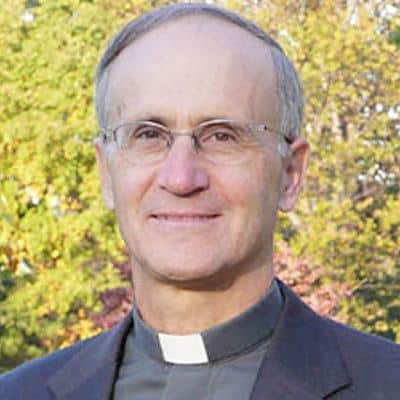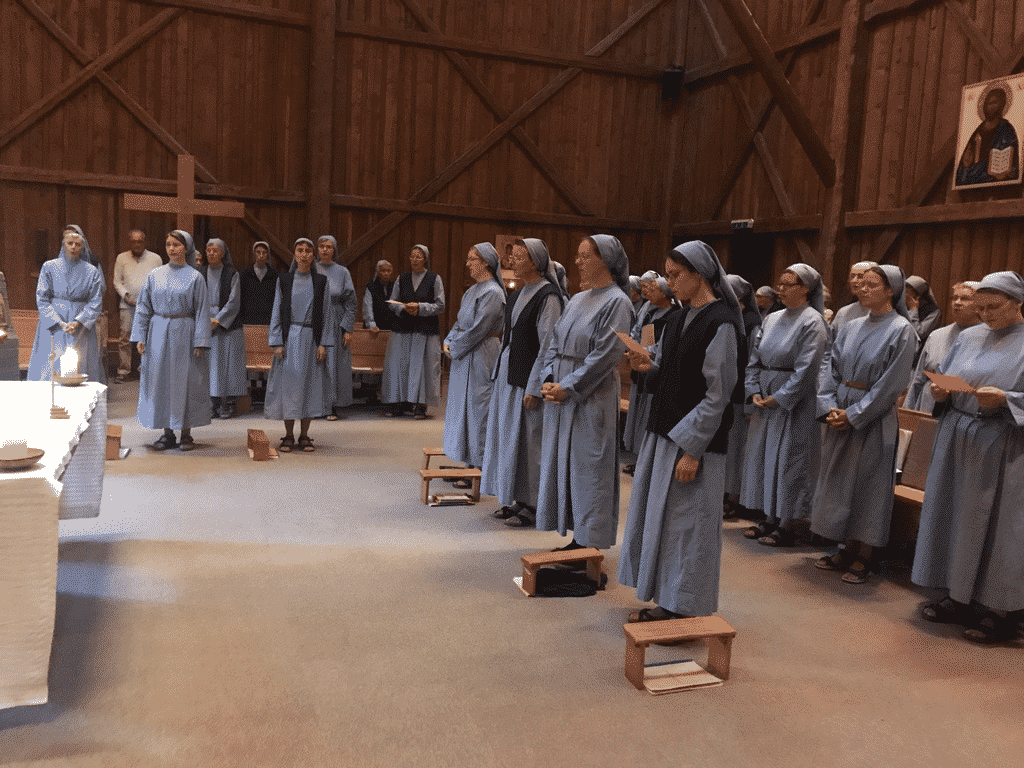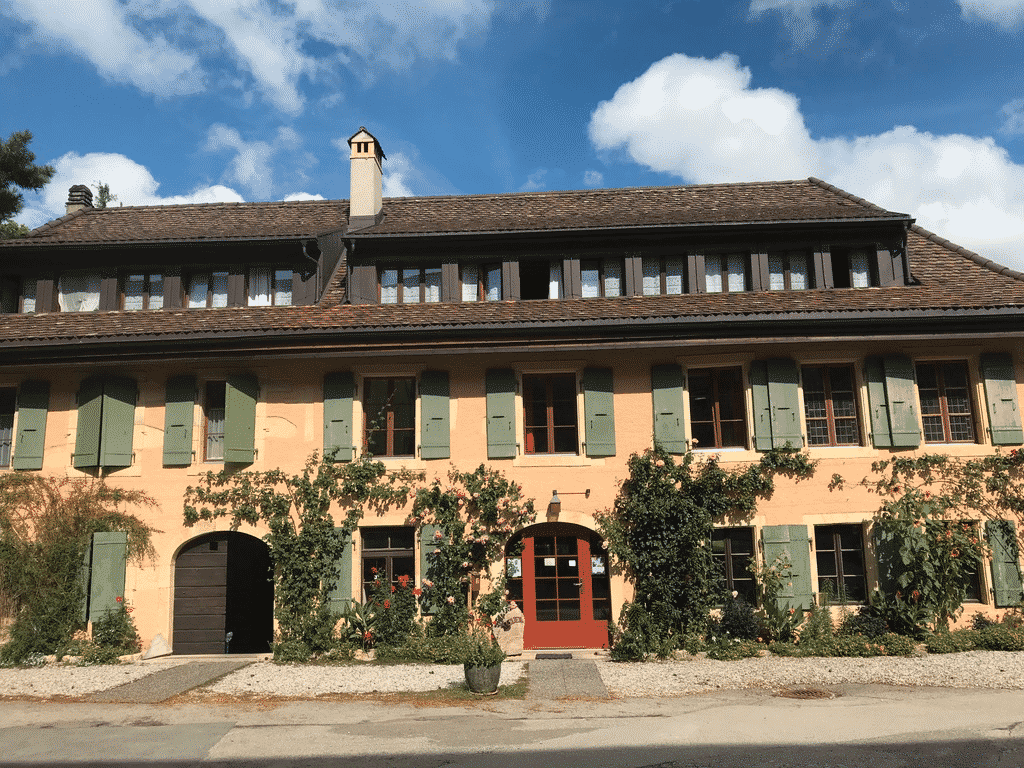January 11, 2021

The approach of the annual January 18-25 Week of Prayer for Christian Unity may raise for some the question of “When did this begin, and how long has been in place?”
The idea of a period of prayer for Christian unity originated in a conversation between Fr. Paul Wattson, founder of the Society of the Atonement, and an English clergyman, Rev. Spencer Jones. In 1907, Jones suggested that a day be set-aside for prayer for Christian unity. Fr. Wattson agreed with the concept but offered the idea of an octave (8 days) of prayer between the Feast of St. Peter’s Chair on January 18 and the Feast of the Conversion of St. Paul on January 25. The first observance of the “Church Unity Octave” took place in 1908.
Pope Pius X gave his blessing to the Church Unity Octave and in 1916, Pope Benedict XV extended its observance to the universal church. This recognition by papal authority gave the Octave its impetus throughout the Roman Catholic Church. Fr. Wattson became the founder of the Franciscan Friars of the Atonement (at-one-ment) and until his death in 1940, Fr. Wattson promoted the Church Unity Octave. The Friars remain today leaders for unity among the followers of Jesus.
In the 1930’s, Abbé Paul Couturier, a priest of the Archdiocese of Lyons in France, promoted prayer for Christian unity on the inclusive basis that “our Lord would grant to his Church on earth that peace and unity which were in his mind and purpose, when, on the eve of His Passion, He prayed that all might be one.” This prayer of Jesus, Couturier believed, should unite Christians in prayer for that perfect unity that God wills and by the means that God wills. Like Fr. Paul Wattson, Abbé Couturier exhibited a powerful passion for unity and sent out “calls to prayer” annually until his death in 1953.
Today, the Week of Prayer for Christian Unity is sponsored by the Commission on Faith and Order of the World Council of Churches and the Pontifical Council for Christian Unity. Each year a scriptural theme for the Week of Prayer for Christian Unity (WPCU) is chosen and a liturgical service is prepared.
The WPCU materials for 2021, along with the scriptural theme, “Abide in my love… you will bear much fruit” (John 15: 5,9), were prepared by the Monastic Community of Grandchamp in Switzerland, edited and approved by the joint Week of Prayer committee of the World Council of Churches and the Pontifical Council for Promoting Christian Unity. On a national basis in the U.S., materials for the celebration of the Week of Prayer are published by Graymoor Ecumenical & Interreligious Institute (www.geii.org).
This year’s theme expresses the Grandchamp Community’s vocation to prayer, reconciliation and unity in the church and the human family. The history of that community is in itself an inspiring parable of communion.
In the 1930’s a group of women of the Reformed Church of French-speaking Switzerland rediscovered elements of the monastic life: the importance of silence, listening to the Word of God, taking Christ as their model. They hosted retreats, and in 1944 found a regular home/retreat center for them in Grandchamp near the Swiss/French border.
At the time there were no monastic communities in the Reformation churches, so the women turned to Catholic and Orthodox monasteries for guidance in living in community a life based on the Word of God and daily contemplation, while at the same time receiving others in hospitality. Genevieve Micheli, the initiator of these retreats, became the first Mother Superior of the community in 1944.
The first sisters—particularly Mother Genevieve—experienced the pain of division between the Christian churches. The sisters’ work would be founded on that which was essential for her: prayer and action in the light of John 17:21: “That they may all be one. As you, Father, are in me and I am in you, may they also be in us, so that the world may believe that you have sent me.” She sought to give her life for unity in Christ and through Christ, until the day when God would be all in all. The ecumenical calling of the community was a grace received from the beginning.
This grace was stirred and strengthened by several decisive encounters. The sisters were encouraged by their friendship with Abbe Paul Couturier, a French pioneer in the development of what would become the modern Week of Prayer for Christian Unity. Deep bonds developed between him and the first sisters, and he accompanied them faithfully on their spiritual journey, writing to Mother Genevieve in 1940: “. . . No spiritual retreat should take place without having Christians leave it with acute suffering over separations and the determination to work for unity through fervent prayer and progressive purification . . . .”
Bonds of deep relationship also developed with Roger Schutz, the founder of the ecumenical community of Taizé in France. He visited the sisters in 1940 and kept in contact with them. And in 1953, the Grandchamp community adopted the Rule of Taizé and its Office of Prayer. Therefore, from its earliest beginnings, prayer for Christian unity was at the heart of the life of the community.
And like Taizé, it’s “brother community”, the Grandchamp community is composed of sisters from multiple countries. Because Grandchamp is close to the linguistic and cultural border between the French and German speaking parts of Switzerland, the sisters were soon drawn to take steps to discover others who were different from them. By welcoming German and Dutch women into the community shortly after the Second World War, their vocation of unity expanded into a vocation of reconciliation, with women coming from Austria, the Czech Republic, Sweden, Latvia, Indonesia, and Congo to join the first sisters from Switzerland and France.
Today the community consists of about 50 sisters. The majority live at Grandchamp, Areuse, in French-speaking Switzerland; some are at Sonnenhof, near Basle and others are elsewhere in Switzerland, the Netherlands and France. In each place, the essentials remain the same: common praise, meditation on God’s Word, prayer, the call to reconciliation and community life as a parable of communion, and sharing with all those who come. The community wants to be open to all as a place of listening, of finding new strength.
This commitment to unity among Jesus’ followers, together with Grandchamp’s fidelity to its three pillars—prayer, community life and hospitality—form the foundations of the 2021 Week of Prayer for Christian Unity materials.
The theme is “Abide in my love and you shall bear much fruit”. This theme is based on John 15: 1-17 and expresses the Grandchamp Community’s vocation to prayer, reconciliation and unity in the Church and the human family. Jesus’ prayer for unity is an invitation to turn to him and so come closer to one another, rejoicing in the richness of our diversity.
Spirituality and solidarity are inseparably linked. Abiding in Christ, we receive the strength and wisdom to act against structures of injustice and oppression, to fully recognize ourselves as brothers and sisters in humanity, and to be creators of a new way of living.
For the eight days of the Week of Prayer for Christian Unity, the sisters propose a journey of prayer with a different verse each day from the passage from which the overall theme is drawn:
- Day 1: Called by God: “You did not choose me, but I chose you” (Jn 15:16a)
- Day 2: Maturing internally: “Abide in me as I abide in you” (Jn 15:4a)
- Day 3: Forming one body: “Love one another as I have loved you” (Jn 14:12b)
- Day 4: Praying together: “I do not call you servants any longer . . . but I have called you friends” (Jn 15:15)
- Day 5: Letting oneself be transformed by the Word: “You have already been pruned by the word . . . “ (Jn 15:3)
- Day 6: Welcoming others: “Go and bear fruit, fruit that will last” (Jn 15:16b)
- Day 7: Growing in unity: “I am the vine, you are the branches” (Jn 15:5a)
- Day 8: Reconciling with all of creation: “So that my joy may be in you, and that your joy may be complete” ( (Jn 15:11).
To enrich your prayer, find daily reflections on each of these verses here.
For more information visit: www.grandchamp.org
Thomas Ryan directs the Paulist National Office for Ecumenical and Interfaith Relations located in Boston.


